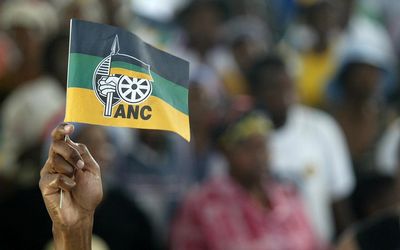A REPORT by global research firm Nomura has condemned the African National Congress (ANC) for "underperforming" since 1994, despite being in power in a period of improved foreign investment and the globalisation of goods and financial markets.
The recent report, entitled South Africa: 20 years of progress under democracy ... but also 20 years of underperformance, said that "with other policy choices the economy could have grown faster and, more importantly, created more jobs and so lower inequality".
Released in anticipation of elections on May 7, the research tracked South Africa’s economy since the first democratic elections.
Nomura researcher Peter Attard Montalto said the ANC got policy right in terms of state intervention in welfare and macroeconomic policy.
"But microeconomic policy has led to the underperformance of development beyond the basics during the past 20 years. This is evident in the developments in the labour market since 2008 — the external shock (of the recession) was compounded through domestic policy choices and foundations in place and was ultimately a failure of micro rather than macroeconomic policy," he said.
Head economist at the South African Institute of Race Relations Ian Cruickshanks said South Africa did have a good story to tell and that in any economy and country, more could always be done.
"Over the years, the ANC as an organisation has been very market friendly. They have allowed a lot of development by the private sector. So when the president says this country has a good story to tell so far, he isn’t lying — though the good story is beginning to derail a little. Could it be better? Yes. But it can always be better."
The report ranked the economy under the leadership of Nelson Mandela, Thabo Mbeki and most recently under Jacob Zuma. It said economic policy under Mr Mandela and Mr Mbeki had leaned towards the free market and an investor-friendly environment, while under Mr Zuma it had leaned towards "tenderpreneurship and black economic empowerment".
Mr Cruickshanks said economic policy had changed drastically in recent years "and not for the better". He cited the introduction of the Mineral and Petroleum Resources Development Amendment Act.
Among the most contentious of the clauses is the one that allows the state a free-carry interest of 20% of any future oil and gas finds. Another clause allows the state to increase its interest in the operations of an oil or gas project up to 100%, by acquiring a further entitlement of 80% at "agreed prices".
"The problem with this bill is that it has the possibility of bringing foreign investment and development in this sector to a grinding halt," he said.
Mr Cruickshanks said with the ANC leaning towards a more socialist economic agenda, the Democratic Alliance’s (DA’s) economic policies could be seen to be different and more market friendly.
Mr Montalto said despite underperforming, the country could not be referred to as a "failed state". He said there have been three different economy choices for the ANC since 1994 — most notably involvement and close alliance with the Congress of South African Trade Unions (Cosatu), and labour in general.
"The fact that the ANC has a wide variety of people in different camps in government and across the state from each faction means that performance is also very uneven. The ANC has achieved much in order to maintain balance but underperformance has come from the choices required to maintain this stability of factors," he said.
Mr Cruickshanks said rightly or wrongly, the alliance with Cosatu had increased the ANC’s reach to voters.
"They will remain influential going forward but just how influential will be decided at the polls. Cosatu advocates for a more socialist economy and it’s up to the ANC to keep it in check. A break or split in the alliance would be market friendly."
Concerning the outcome of the elections on May 7, Mr Cruickshanks said: "It’s difficult to tell how the market would react. A greater than expected majority win for the ANC would probably be market negative as this would reinforce the current socialist inclination."
He said if they scraped through, this would also be market negative as this could force them to "lurch to the radical left" for a foothold.
"Moderate decline in support would be most preferable. Gains for the DA, Agang and Cope would be what the market hopes to see," he said.
Mr Montalto said at this stage it was unclear which way the ANC would jump in terms of policy.
"We would dismiss those that believe it is obvious the ANC will move left and given the makeup of the remaining part of the party, together with an evolving 'tenderpreneur' class that wants to secure its gains, we think the likelihood the ANC tacks right is moderately high.
"The concern, however, is that until that point South Africa’s microeconomic policy contradictions will get deeper still. As such, immediately after the election next week we will watch closely for personnel deployments and how the latest slew of legislative changes in recent months are actually implemented," he said.


























Change: -0.47%
Change: -0.57%
Change: -1.76%
Change: -0.34%
Change: 0.02%
Data supplied by Profile Data
Change: -1.49%
Change: -0.05%
Change: -0.47%
Change: 0.00%
Change: -0.22%
Data supplied by Profile Data
Change: 1.08%
Change: 1.42%
Change: 1.03%
Change: 0.59%
Change: 1.17%
Data supplied by Profile Data
Change: 0.07%
Change: -1.04%
Change: -0.13%
Change: -0.86%
Change: -0.39%
Data supplied by Profile Data